WASHINGTON (Army News Service, May 13, 2011) -- A number of young wounded warriors showed up at the Navy Memorial May 12, 2011, to view the world premier of "Ironclad," directed by Jonathan English and starring Paul Giamotti.
"I had dinner with him," said Spc. Jeffrey Shonk, a wounded warrior currently at Walter Reed's Warrior Transition Unit. He also had dinner with award-winning actor Gary Sinise who hosted a gala, "Have Heart, Give Hope" for the wounded warriors on Wednesday night.
"Those guys always come by Walter Reed," Shonk said.
Asked if they are able to get out much, Shonk and his buddy, Fred Simpson, said they get away from the WTU as much as possible.
Simpson said with a smile on his face that he was thankful for the chance to attend the film's premier and the other events the GI Film Festival had to offer during the week with his friends.
Chris Billmyer, a U.S. Marine, attended the festival with his mother, Cheryl.
"I stepped on an IED (improvised explosive device) plate October 2010 in Sangin, Afghanistan. The Taliban already had everything set up for us before we moved in," Billmyer said.
He ended up in Minnesota at the Veterans Administration hospital where he spent time building up his strength following surgery.
"I'm at Walter Reed's Military Advanced Training Center, now to get fitted with prosthetic legs," he said.
The Military Advanced Training Center, or MATC, was constructed in support of U.S. military personnel injured in combat and undergoing post-amputation therapy at Walter Reed Army Medical Center. The center officially opened on Sept. 13, 2007, to help Soldiers with amputations returning from the war on terror.
Before the film began, Henry Schleiff, president and CEO of Discovery's Military Channel, probably summed up what the other festival participants and filmmakers were feeling.
"I'm pretty sure, especially the Soldiers here tonight, have probably heard too many speeches in your service to our country. I know one thing for sure. You have not heard enough. You cannot possibly hear enough words of thanks for your service to our country," Schleiff said to resounding applause from the audience.
He alluded to the past week's developments of the Navy Seals' encounters with Osama bin Laden.
"You guys have given our country peace and security. So I can't begin to say how appreciative we are of the sacrifice which you have made and your families have made - whether it's a spouse, child, or loved one. It's an incredible sacrifice and we know it," he said.
Events like the GI Film Festival, he said, are vital because they provide a platform to honor the successes and the sacrifices of the American military through the medium of documentary films, which make up the bulk of the week-long festival.
"It's a special pleasure to be here tonight to introduce the festival's feature presentation of 'Ironclad.' The film represents the universality of the warrior experience as 13th-century forces fight against the tyranny of King John when he reneged on his signing of the Magna Carta," Schleiff said.
The film illustrated many of today's themes of loss, family sacrifice and overcoming the ferocity of battle in graphic detail.
"I thought the film, overall, was great," said Wayne Mastel, a young Soldier from Walter Reed's WTU, who attended with his mother, Toni.
"A lot of the themes were not unlike what we face today, like family issues, the loss of a comrade and the mental strain of battle. But that hand-to-hand combat, much more respectable kind of man back then, really different kind of battle," Mastel said, adding that he feels he's been at Walter Reed too long.
"It's been six months," his mother said.
Other filmmakers also came to see Jonathan English's film, but more to network and generate interest in their own films.
Christopher Loverro, a former Soldier who is now an actor and filmmaker, came with his cinematographer and editor, Eric Katsuleres.
"So far I've gotten great feedback from students at college campuses, such as UC Berkeley," Loverro said of his film, "Journey Home." He was able to attend thanks to funds raised by retired Lt. Col. Bill Chadwick and Gen. David Patraeus, both 1974 graduates of West Point.
Chadwick is co-founder and executive director of California Veterans Support Foundation in Napa, Calif., and a friend of Loverro.
Written, directed and starring Loverro, an Iraq war veteran, the film explores the trials of a Soldier who volunteers to return home from the battlefield to notify his friend's wife of the death of her husband.
Loverro's film, "Journey Home," was his college thesis film but he and Katsuleres have gone on to produce training videos for the VA at Fort Miley in San Francisco.
"The films are part of a training program for their primary care providers to recognize symptoms of PTSD when new veterans enroll in the VA," said Loverro.
Pfc. Martin Mylo of Denmark has been in his country's Army for five years. His movie, "M.I.L.O," was screened May 10, 2011.
"I got the permission of the Royal Guards and my platoon commander to film my music video and to make a documentary that we're not quite done with yet, called, "Goodbye 09." My deployment was in February 2010, so the Christmas of '09, my birthday on December 30, and the New Year's Eve was like my goodbye to my family," Mylo said.
Martin, a 25-year-old Danish rapper, starred in his music video, which was directed documentary-style by Julius Telmer. It tells the real-life story of the six-month journey that brought the rapper from his last concert in Denmark to the war in Afghanistan.
But he's not resting on his glory as a film star or rapper.
"If everything goes well, I'll go back to Helmand Province in Afghanistan in 2013 where we're going to mentor the Afghan National Army and the Afghan National Police. Once trained, we'll withdraw from the frontlines and let the Afghans do the fighting themselves. But if they get into trouble, we will be there to support them," Mylo said.
Two other filmmakers were overheard chatting about their films.
Tyler Elliott, who grew up in a military family, has always had respect for Soldiers. But because of injuries, he wasn't able to join. A filmmaker with his own equipment, he decided to film a documentary in Afghanistan.
"I was told 'no' so many times that when I finally got the call saying I had to be there in Afghanistan in three weeks, I went 'holy crap.' I didn't even have the money to get over there," he said.
But his dad supported his son's dreams and gave him the money to travel.
Nicholas Mezzanato had another reason for making his film.
"My short 10-minute film, "Verdict," is about my personal struggles with PTSD," Mezzanato said.
In the film, a Soldier returns home from Iraq and struggles with Post Traumatic Stress Disorder. But while visiting a restaurant, he witnesses a violent altercation. Resorting to his training, the Soldier springs into action. In the criminal trial that follows, tempers flare and everything hinges on the verdict.
In addition to earning the attention of top Hollywood producers who scout the GI Film Festival's films for potential distribution deals, the festival has also secured a new TV series with the Discovery Military Channel. This series will broadcast select films into 57 million homes nationwide.
For more information on the GI Film Festival, visit http://gifilmfestival.com.
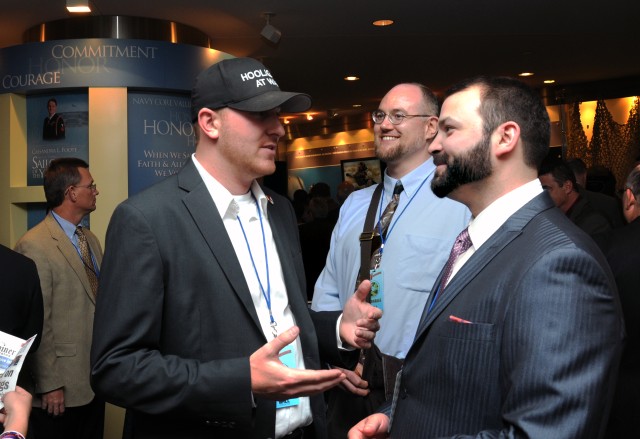
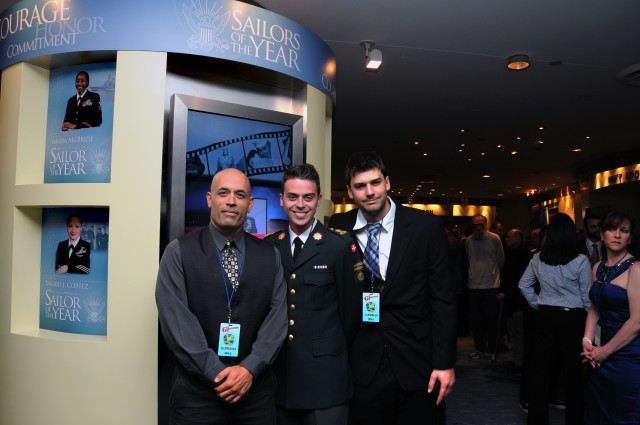
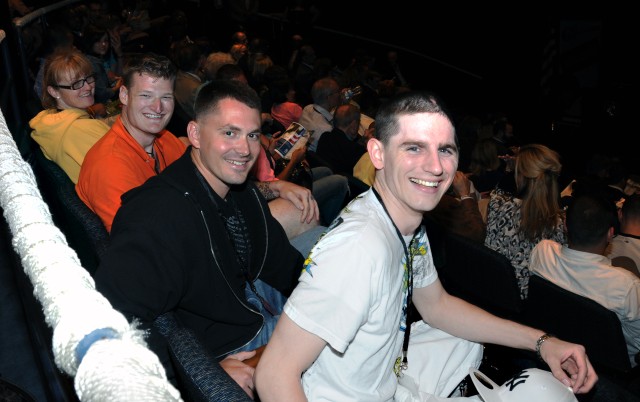
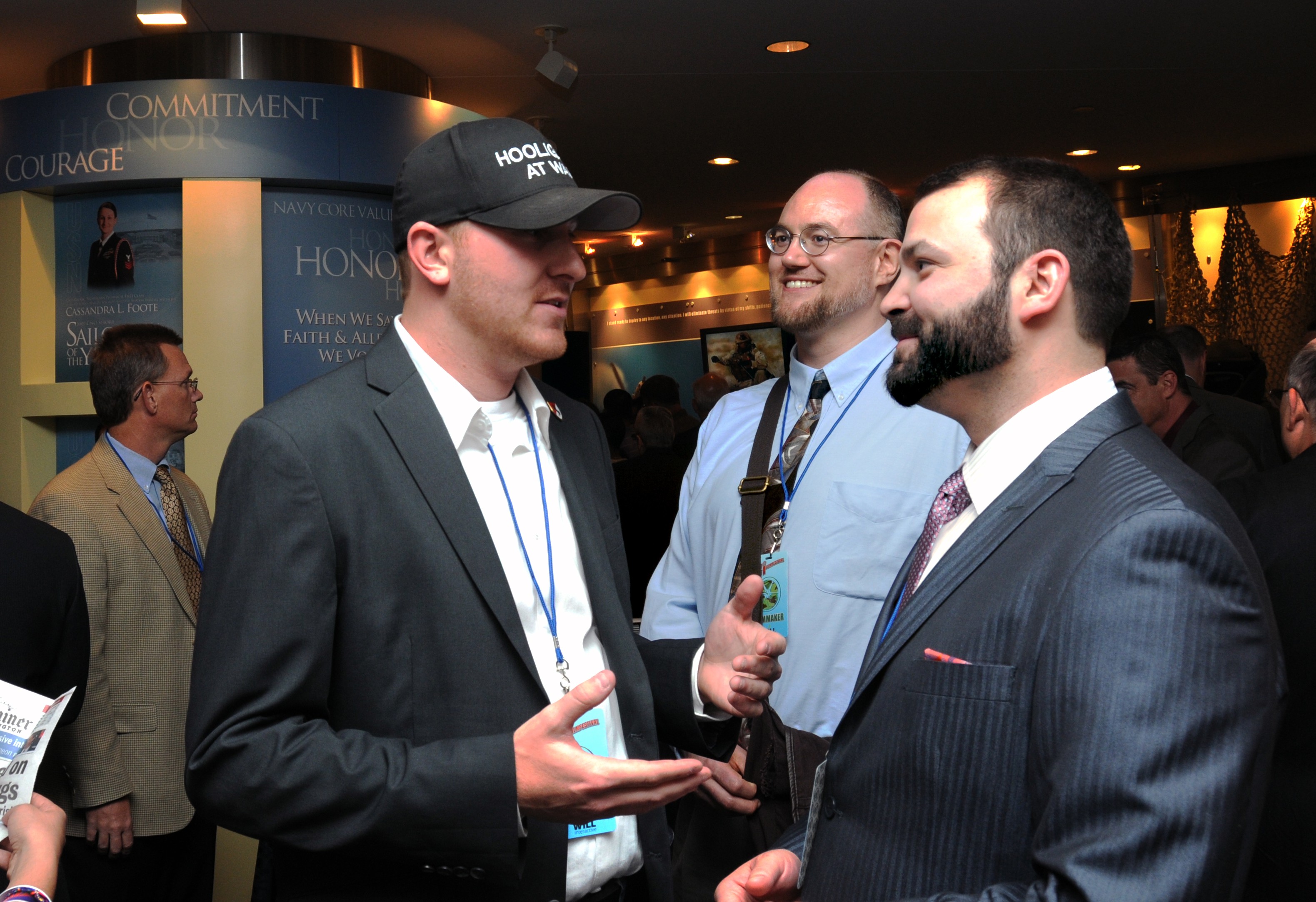
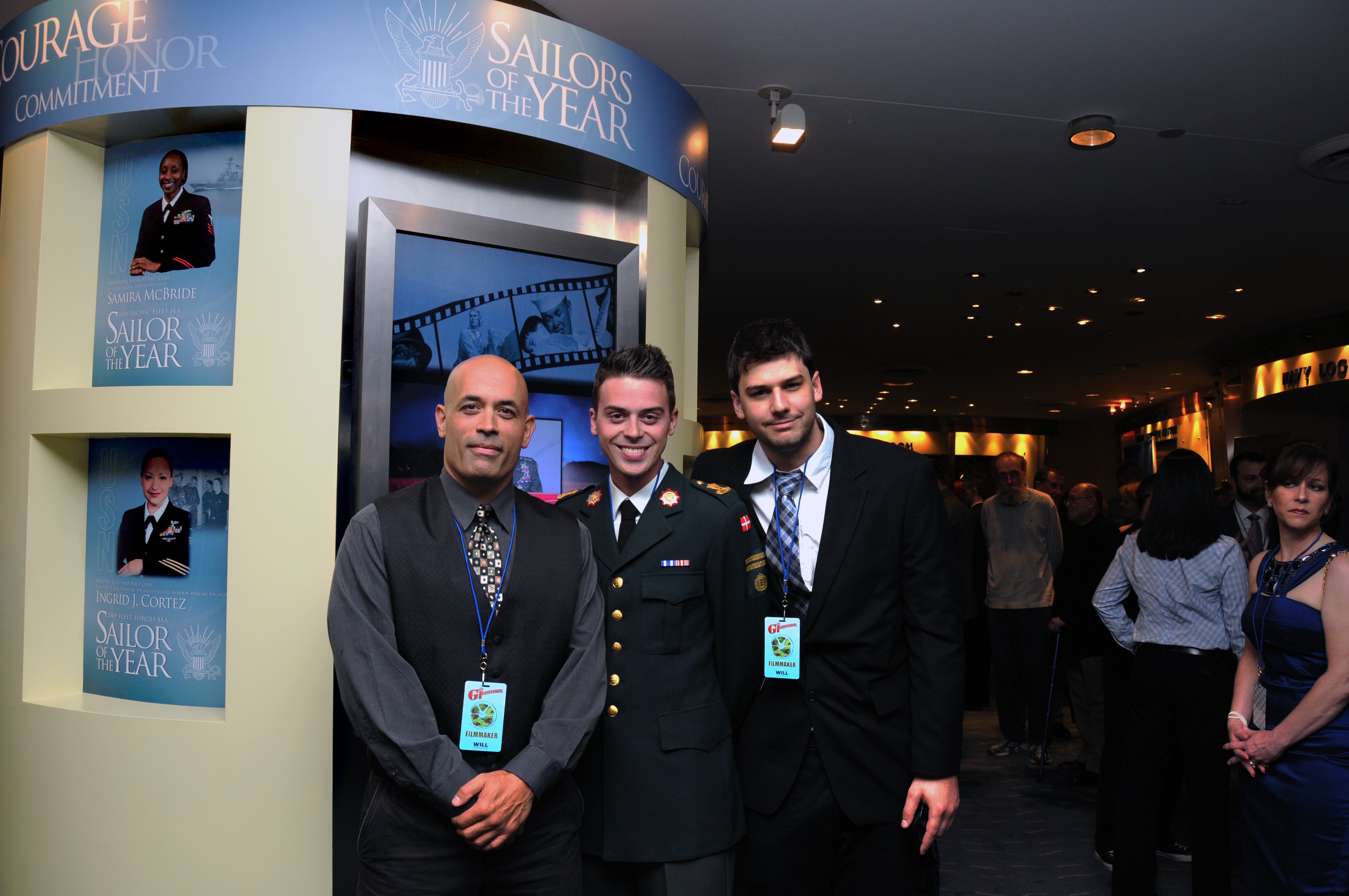

Social Sharing